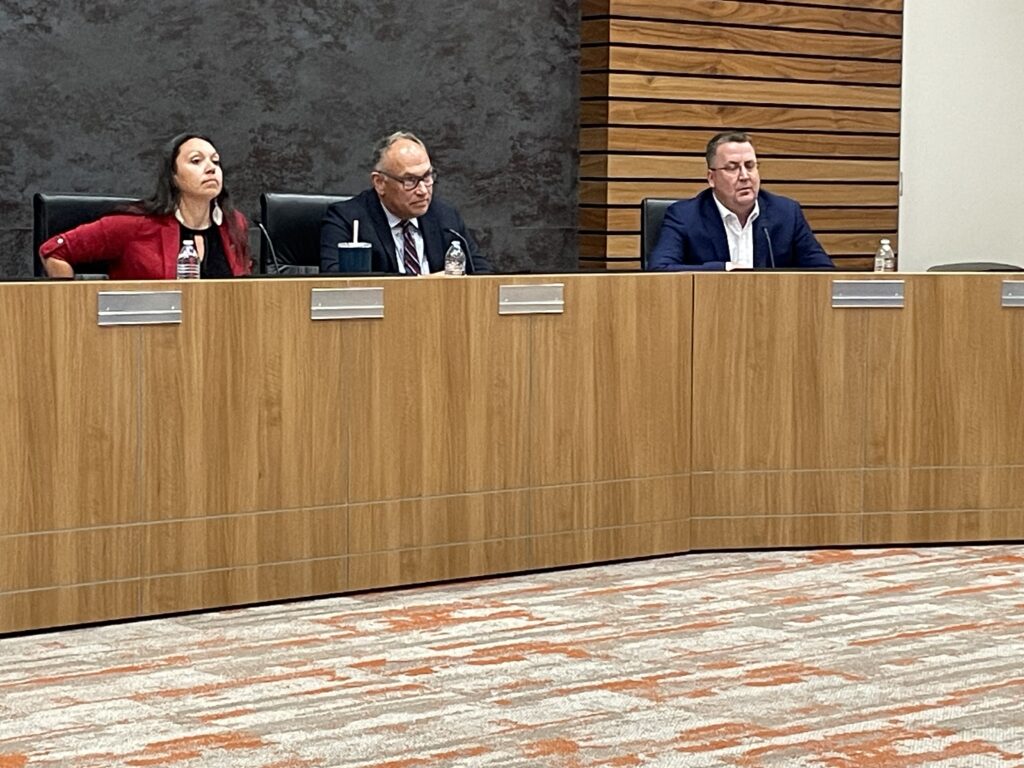
Minnesota Rep. Heather Keeler – Dist. 4A, Sen. Rob Kupec, Dist. 4 and Rep. Jim Joy, Dist. 4B, field questions on the 2023 legislative session before a big crowd at the Moorhead Area Public Schools Operation Center on Tuesday. (Photo/ Dan Haglund. )
Dan Haglund
Minnesota Rep. Heather Keeler, Dist. 4A, Sen. Rob Kupec, Dist. 4 and Rep. Jim Joy, Dist. 4B, gave their impressions of the recent legislative session before a crowd of dozens at the Moorhead Area Public Schools Operations Center on Tuesday.
Rep. Deb Kiel, Dist. 1B, was also scheduled to participate but was unable to attend the Fargo Moorhead West Fargo Chamber of Commerce’s Minnesota Legislative Wrap-Up event to discuss policies that will shape our greater community’s future.
The event featured informative discussions and question-and-answer opportunities covering various topics, such as business, workforce, child care, education and infrastructure.
Regarding the state budget, DFLer Kupec started off.
“Going in (to the session) we had a $17.5 billion surplus,” Kupec said. “The majority of that surplus – about $12 billion – was made up from federal one-time money. So it was money that was not going to be there in the future. Then the rest of the surplus came from two areas: during the pandemic we had some corporations that did really well in Minnesota, so corporate taxes came in significantly higher than they were estimated. The other area we had a lot of money was sales tax revenue was much higher than we expected. We didn’t know that when the pandemic was over was going to go ‘I want to buy a lot of stuff now.'”
Republican Joy added his impressions of the surplus, and more specifically on the state gas tax: “I guess I would have liked to have seen us focus more on putting Minnesota in a competitive stance against North Dakota so we can attract more businesses across the river. When we don’t change personal income tax and we add taxes to things on our side of the river, North Dakota’s not doing that.”
DFLer Keeler: “As of two weeks ago, our forecast was that we were better than we thought we were going to be. We were up by 1.8 percent (in revenue). What that says to us is that what we’re doing in Minnesota is working, and we’re doing really well on that. It wasn’t just pandemic money, we’re kind of getting out of that. With one-time money, we’re only spending money now and next year (in the biennium) and that’s it.”

